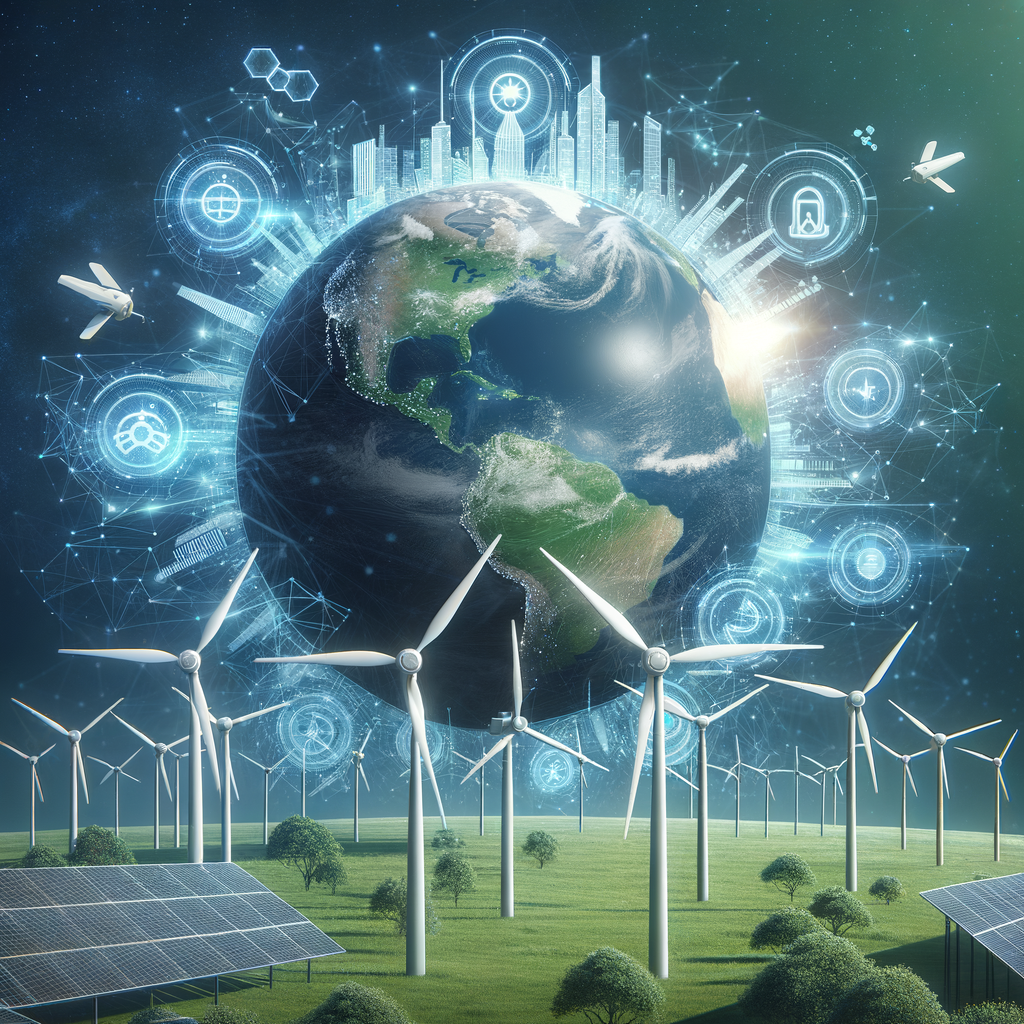
The AI-Driven Energy Revolution: Powering a Sustainable Future
Explore how artificial intelligence is transforming the energy sector, paving the way for innovative solutions in renewable energy, grid management, and energy efficiency. Discover the breakthroughs that AI brings to the industry and its role in driving a sustainable future.
The AI-Driven Energy Revolution: Powering a Sustainable Future
The intersection of artificial intelligence (AI) and the energy sector is creating a revolution that promises not only enhanced efficiency but also sustainability for future generations. As the world grapples with climate change and the need for sustainable energy solutions, AI emerges as a powerful ally in transforming the way we produce, distribute, and consume energy.
The Role of AI in Renewable Energy
Renewable energy sources such as solar, wind, and hydroelectric power have seen significant growth in recent years. AI plays a crucial role in optimizing these renewable energy systems. Through machine learning algorithms, AI can predict weather patterns, optimize energy output, and manage supply and demand with precision. This results in increased efficiency in energy production and reduced wastage, making renewables more viable and competitive against traditional fossil fuels.
Predictive Maintenance and Energy Efficiency
One of the most practical applications of AI in the energy sector is predictive maintenance. By analyzing data from sensors installed on wind turbines, solar panels, and other energy infrastructures, AI can predict potential failures before they occur. This not only reduces downtime but also saves costs and prolongs the life of the equipment.
AI also facilitates energy efficiency by optimizing consumption patterns. For instance, smart grids powered by AI can automatically adjust the distribution of energy based on real-time demand and supply data. Such advancements ensure that energy is used more efficiently, reducing overall consumption and carbon footprint.
AI in Grid Management
The energy grid is a complex, interwoven system that requires precise management to function optimally. AI brings several advantages to grid management, such as balancing load, integrating renewable sources, and predicting demand spikes. With AI, utilities can make better decisions about when and how much energy to release into the grid, ensuring reliability and stability. This becomes increasingly important as more intermittent renewable sources come online.
Autonomous Energy Trading
AI-powered systems are also making strides in energy trading. These systems can analyze market conditions in real-time, taking into account factors such as current energy prices, demand trends, and environmental conditions. As a result, they can autonomously make profitable trading decisions, leading to more efficient market operations and better pricing for consumers.
Community and Consumer Impact
On the consumer front, AI is helping individuals and communities take control of their energy consumption. Smart home devices and applications allow users to monitor and optimize their energy usage, leading to cost savings and a reduced environmental impact. Furthermore, AI-driven systems enable better energy sharing within communities, encouraging local energy production and consumption, which is particularly advantageous for remote or underserved areas.
Challenges and Ethical Considerations
While AI's potential to transform the energy sector is vast, it also presents certain challenges and ethical considerations. Data privacy, cybersecurity, and the potential for job displacement are key issues that must be addressed as AI becomes more prevalent in the industry. Equitable access to AI-driven energy systems and transparency in their operation are also critical to ensure that all stakeholders benefit from the AI energy revolution.
Conclusion
AI is set to play a pivotal role in the future of energy, driving innovations that could lead to a more sustainable and efficient energy ecosystem. As the integration of AI continues to grow, its ability to reshape the energy landscape is undeniable, ushering in an era of possibilities where sustainability and technology go hand in hand.